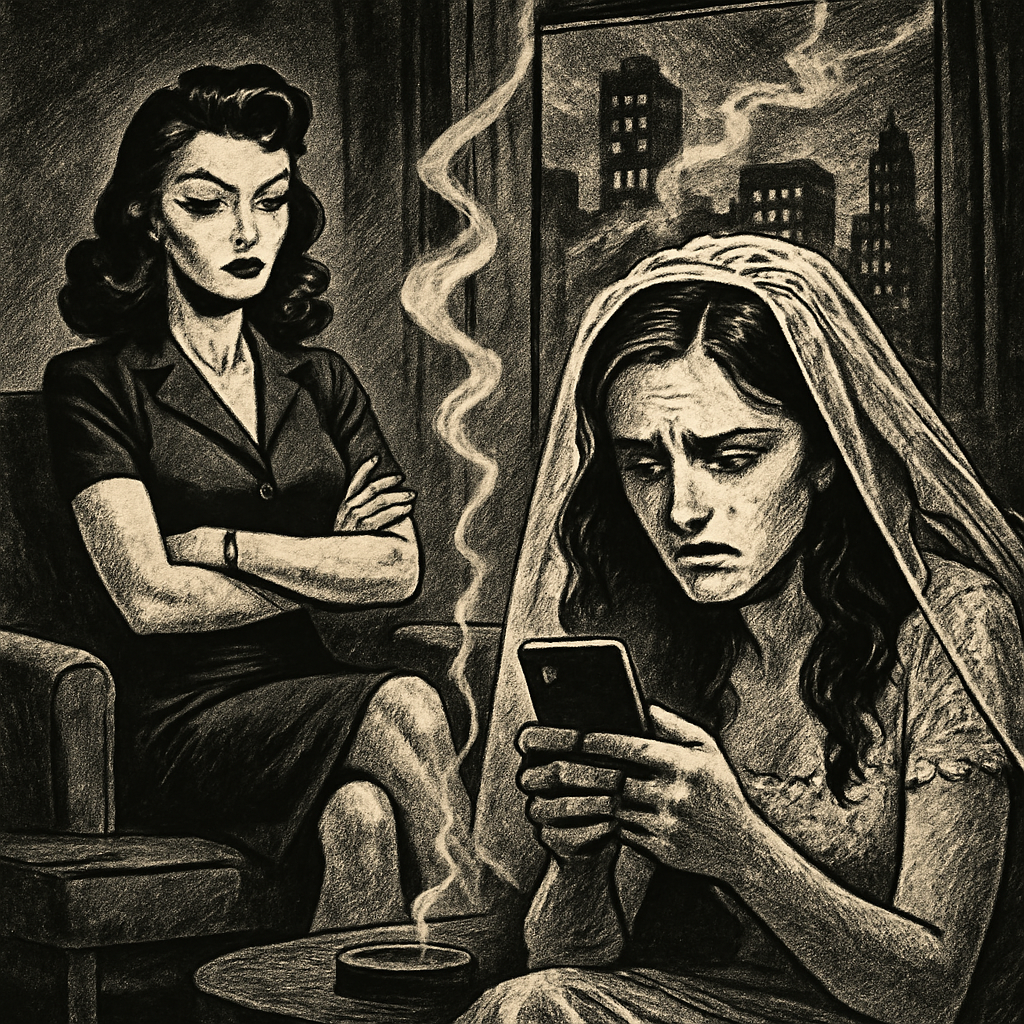🐛 When Bugs Become Monsters
I remember the day Emily K. walked into my office clutching her phone like it contained nuclear launch codes. She was getting married in six months, and her face had that distinctive blend of joy and terror that only brides-to-be can truly master. Emily wasn’t worried about her future mother-in-law or whether the DJ would play the Macarena. No, Emily was losing sleep over bedbugs. Not current bedbugs. Not bedbugs she’d seen. But potential, hypothetical, might-have-existed-a-year-and-a-half-ago bedbugs at her dream wedding accommodation.
“Emily was always meticulous,” I recall. “She color-coded her therapy notes and apologized when she was two minutes early to sessions. But this bedbug situation had her completely unraveled in a way I hadn’t seen before.”
Here’s what fascinated me about Emily’s case: she wasn’t actually afraid of bugs. What she was experiencing was a perfect storm of emotional bytes centered around control, judgment, and identity. The bedbugs weren’t just insects; they had become symbols of potential disaster, social embarrassment, and personal failure.
🧠 The Perfect Day Paradox
Emily’s anxiety wasn’t really about the bugs. It was about what they represented: the possibility that on the most photographed, most remembered, most judged day of her life, something might go wrong that she couldn’t control. Each time she thought about those bugs, her brain activated an entire emotional frame of “wedding disaster” that connected to her deepest identity needs.
Why do we catastrophize like this? Because our brains are prediction machines, constantly scanning for threats. When something triggers our safety concerns (like photographs of bedbugs), our emotional scripts kick in automatically. For Emily, this activated what I call the “perfect day paradox” script – the more important a day is, the more catastrophic any imperfection becomes.
💍 The Hidden Psychology of Wedding Planning
Research shows that temporary stressors like wedding planning can magnify our existing anxiety patterns to almost comical proportions. Emily wasn’t actually experiencing a bedbug infestation – she was experiencing anticipatory anxiety about a hypothetical scenario that had already been resolved (if it ever existed).
What makes this particularly interesting is how Emily’s brain had created an emotional math equation that made absolutely no sense: “Historic inn with kitchen access and perfect location = 100% certainty of bedbug apocalypse.”
When I pointed this out, Emily laughed for the first time in our session. “But the pictures looked so real,” she insisted.
“Of course they did,” I replied. “And so do the photos of the Loch Ness Monster.” 🐉
🔄 Breaking the Anxiety Loop
The turning point came when we examined how Emily’s emotional needs for certainty and control were creating a feedback loop with her anxiety. Her brain was demanding 100% certainty in a world that offers none. Bedbugs were just the current focus of this impossible demand.
We worked on developing what I call “reasonable confidence” – the ability to make decisions based on probability rather than certainty. The inn had 87 positive reviews and only one negative one from 16 months ago. Every review since had been stellar.
“What’s more likely,” I asked Emily, “that there’s an ongoing, unaddressed bedbug infestation that somehow 87 people failed to notice, or that one reviewer had a bad experience – or possibly even a grudge?”
By reframing the situation through a probability lens rather than a certainty lens, Emily was able to access her naturally logical mind. She decided to call the inn directly, have a frank conversation about her concerns, and ask about their pest control protocols.
✨ The Plot Twist
The owner was surprisingly understanding, explaining that the “review” had actually come from a disgruntled former employee who had never stayed at the inn. They had professional pest control quarterly and would happily show Emily their certification when she visited.
🎯 The Real Lesson
What Emily learned wasn’t just about bedbugs. It was about how our brains construct emotional narratives around uncertain situations, especially during high-stakes life events. The bedbugs were never the problem – the problem was the meaning she attached to them and how they activated her core fears about losing control of her perfect day.
A month after her wedding (at the historic inn, bedbug-free), Emily sent me a thank you note with a photo of her wedding party in the inn’s garden. “Best decision ever,” she wrote. “Though I did check the mattress when we arrived. Old habits die hard!” 📸
💡 Core Insight
Your anxiety isn’t irrational – it’s just solving for the wrong equation.
Until next confession,
Sophia Rivera, who still checks hotel reviews obsessively despite knowing better 🏨
https://www.pctonline.com/article/mental-and-emotional-tolls-of-bed-bugs/
https://www.goodtherapy.org/blog/bed-bugs-facing-emotional-turmoil-of-infestation-0728165
https://pmc.ncbi.nlm.nih.gov/articles/PMC8198719/
https://www.sereni-d.com/en/our-advice/psychological-impact-of-bed-bug-victims/

